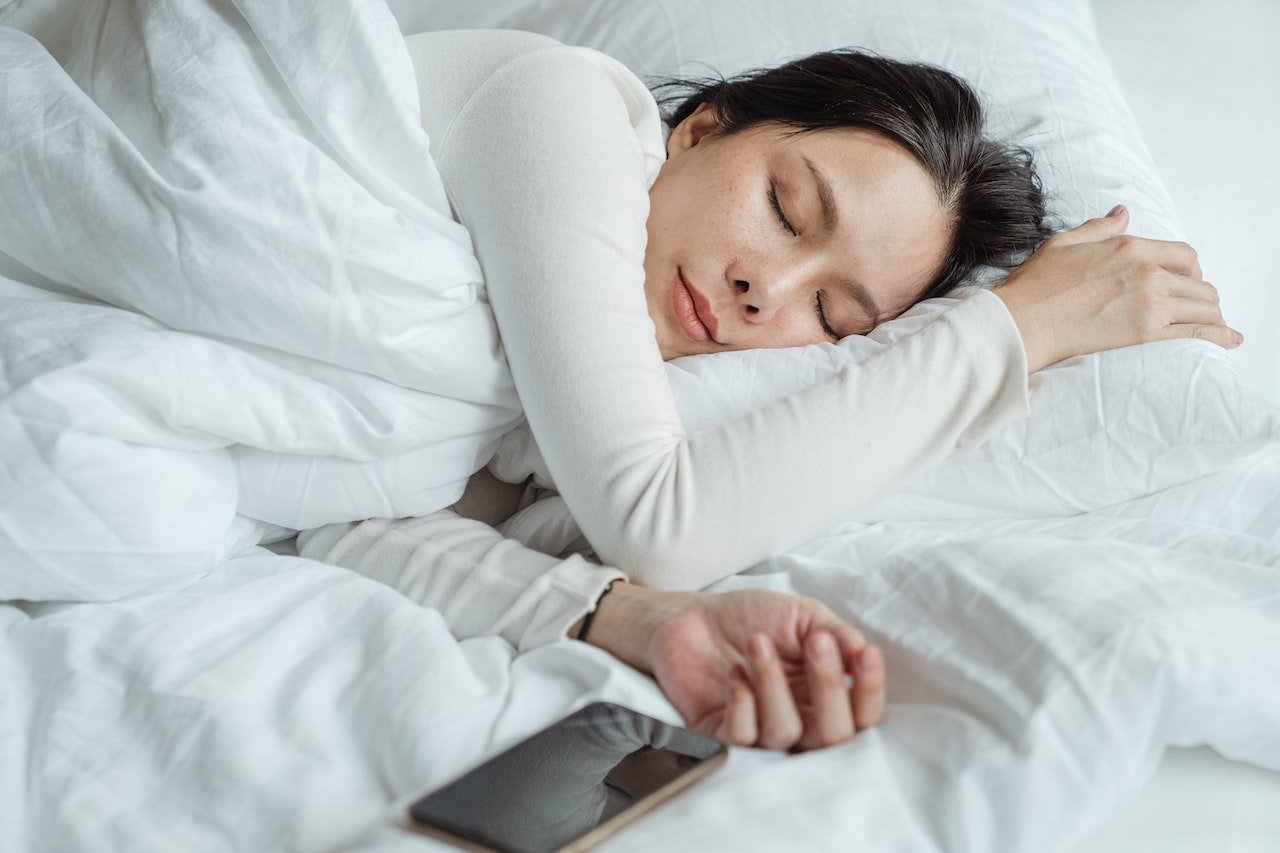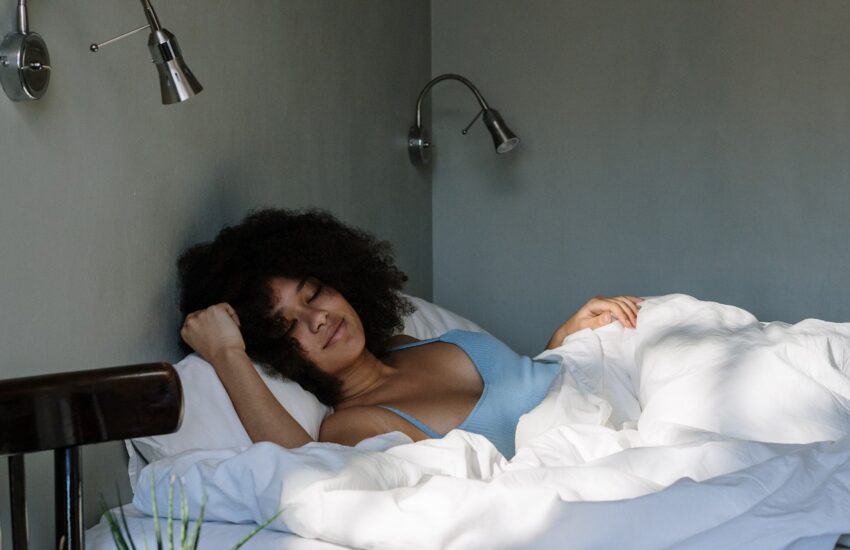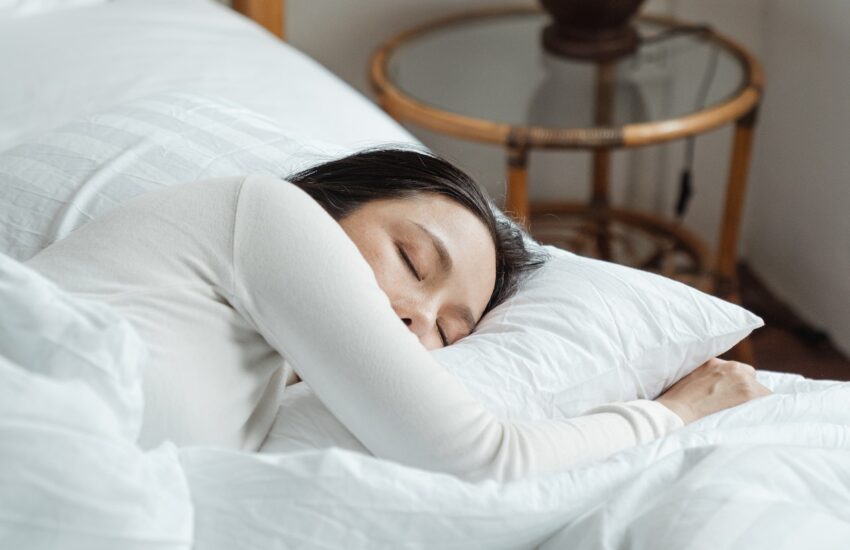8 Easy Ways to Fall Asleep Faster
For most Americans in the modern age, it’s really hard to get to sleep.
That’s because lights are on all the time. We’ve got TVs with captivating programming that keep us up all night, and our phones go with us almost everywhere.
This can lead to a big time disruption in our circadian rhythm, which is our bodys’ natural clock.
If you struggle to fall asleep within just a few minutes of putting your head on the pillow then perhaps some of the following tips might help.
8 Easy-to-Follow Steps to Fall Asleep Faster
1. Take Melatonin: Melatonin is the body’s natural sleep hormone. It serves other roles in the body, but one of the largest is working to regulate the sleep cycle. There are several ways to get more melatonin. You can take melatonin supplements, or you can eat foods that contain melatonin or tryptophan (an amino acid which helps to increase melatonin levels).
Supplementation is one of the more common ways to get more melatonin, however I only recommend melatonin supplementation if you know other hormone levels are unbalanced and when you’ve consulted with a physician.
Excess melatonin can produce some side effects you won’t want to deal with later on.
In terms of foods to eat containing either melatonin or tryptophan try eating the following.
Foods rich in melatonin:
- Bananas
- Morello cherries
- Rice
- Ginger
- Tomatoes
- Radishes
Foods rich in tryptophan
- Grass-fed dairy products
- Nuts
- Fish, chicken, turkey
- Rice (black, brown or red rice are the best)
- Eggs
- Sesame seeds
- Sunflower seeds
2. Take Magnesium: There are millions of Americans in the U.S. and across the world who are deficient in magnesium. Here’s the thing about magnesium, it’s one of the most essential nutrients for the human body as it helps to form over 325 enzymes needed for vital processes. Plus, it helps with muscle relaxation, hydration, energy production, and what’s most important for sleep, the deactivation of adrenaline.
While supplementing with magnesium might not be the lone difference maker in getting to sleep faster, not having enough will almost guarantee you don’t get enough sleep.
Supplementing with around 500 mg a day was even shown by the Journal of Research in Medical Sciences to help improve insomnia and sleep efficiency.
3. Don’t go to bed with electronics: Part of the problem we have now with sleeping is detaching ourselves from electronics. When you’ve got a phone or tablet open in bed, your body hasn’t been triggered to start the sleep cycle.
This actually has something to do with melatonin levels.
Your body depends on visual cues to begin producing melatonin, and light sources detected by your eyes before bed mean your body won’t produce melatonin. Constantly staring into a phone or tablet (or even a TV or other light) will make it so your body is delayed in producing melatonin which can keep you up longer.
4. Be careful with naps: Naps might feel good, but they can disrupt your sleep cycles.
The Mayo Clinic writes:
Long daytime naps can interfere with nighttime sleep — especially if you’re struggling with insomnia or poor sleep quality at night. If you choose to nap during the day, limit yourself to about 10 to 30 minutes and make it during the midafternoon.
If you work nights, you’ll need to make an exception to the rules about daytime sleeping. In this case, keep your window coverings closed so that sunlight — which adjusts your internal clock — doesn’t interrupt your daytime sleep.
5. Change your workout habits: One of the reasons a large number of Americans have problems with sleeping is because their workout routine takes place too late in the day.
Working out produces endorphins which can linger for several hours.
If you workout too late in the day, those endorphins can make it so you’re amped up when you go to bed, preventing you from entering restful sleep.
6. Change or eliminate caffeine consumption: This is a rather unpopular option, but it’s also a vicious, repeating cycle that needs to be curbed for best sleep practices.
Most people rely on caffeine to wake up and stay awake. The problem is the high created by the caffeine will wear off somewhere throughout the day, causing you to go back for another “pick-me-up”, which, as you know, can lead to being overly-caffeinated late at night which can prevent you from falling asleep.
Your options?
Eliminate caffeine altogether, OR, stop drinking it early in the afternoon.
Caffeine has a relatively long half-life, meaning it can last in the body hours after you drink it.
This might not keep you energized the way you like, but it’s enough to prevent you from falling asleep. If you want to have it so caffeine doesn’t influence your sleep patterns, the earlier you stop drinking it, the better. Try having your last bit of caffeine no later than 12-1pm.
7. Use essential oils: Essential oils can promote feelings of calm and relaxation which will help you drift off to sleep in very little time.
Dr. Josh Axe writes:
Incorporating essential oils, or aromatherapy, into your nightly routine is a safe, natural and therapeutic way to encourage your body to wind down. I especially love using lavender essential oil and roman chamomile oil to get me in a drowsy mood on those nights I can’t sleep.
I recommend diluting the pure oil with a carrier oil like almond or coconut oils and then spritzing on your pillow or rubbing on your neck. Or add just a few drops to an essential oils diffuser to fill the room with a relaxing scent. Learn more about the power of essential oils and diluting them in my essential oils.
8. Ritualize your pre-bed routine: Our bodies are remarkable in that they respond to certain cues. Just like Pavlov’s dog would begin drooling when he heard a bell, our bodies can become tired when we perform certain routines before we go to bed.
This can really be anything, but the more relaxing the better.
Perhaps take a bath and listen to music (with the lights dimmed if possible).
Read under a reading lamp, practice meditation, or pray.
Whatever you end up doing, make sure to repeat it every time you go to bed. With enough habitualization of these activities, your body will begin to respond favorably, and it’ll be all that much easier to fall asleep.
Start These Practices Today
Within just a few days of beginning these practices you might see it’s much easier to fall asleep.
Here’s an interesting video on getting to sleep faster.
Talk soon,
Dr. Wiggy
www.HealthAsItOughtToBe.com


